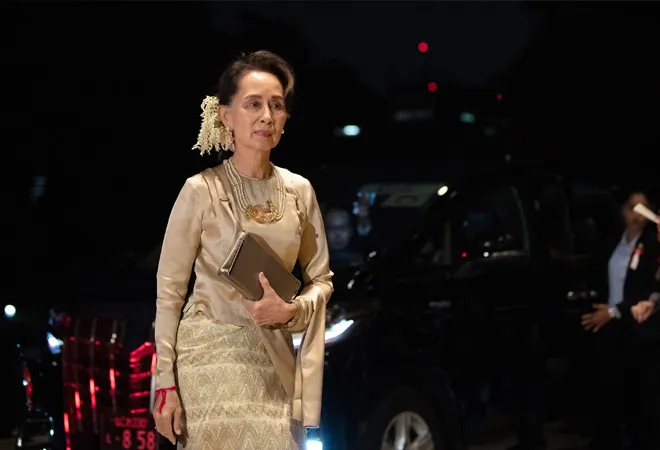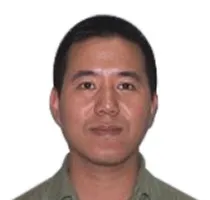
Myanmar’s ruling party, the National League for Democracy (NLD) apparently has decided to go slow on the constitutional reform process until next year’s elections. Last month, the country’s State Counsellor and NLD leader Aung San Suu Kyi in an interview to
Nikkei Asian Review said her party was “not building hopes for the next election on
ability to bring about constitution amendments within the next year.”
The military-drafted constitution was passed through a controversial referendum in 2008 when Myanmar was under the junta. Against all democratic principles, the military regime guaranteed itself a prominent role in the country’s politics and administration. Some of the provisions that privilege the military include holding 25 percent of the seats of the parliaments (Art. 14) and reserving the nomination of ministers of defence, internal security and border affairs (Art. 17 b). The right to takeover power in a state of emergency (Art. 40 c) and the setting up of the National Defence and Security Council as the most powerful body during crisis with military representatives enjoying an upper hand (Art. 201).
The NLD and ethnic-based parties did not accept the constitution and boycotted the 2010 general elections. Two years later, they participated in the 2012 by-elections and again in the 2015 general elections with the confidence that the undemocratic constitution was the first step towards democratising the country and hoped to bring about change from within the system.
The NLD has been one of the most vocal oppositions to the 2008 Constitution both outside and inside the parliament. In 2014, when it was in the opposition, the NLD published a list of proposed amendments to 168 articles of the constitution. In February this year, the NLD party launched a process of constitutional amendment in the parliament by constituting a review committee tasked with collating views from members of parliament.
The committee submitted its report in July with 3,765 recommendations that was approved by the parliament in August. The military members of parliament and those from the military-backed Union Solidarity and Development Party (USDP) objected to the committee. Instead, they submitted their own amendment proposals in the parliament outside the review committee process.
As debates on the recommendations continue in parliament, the ruling NLD government has hinted that constitutional change might not happen before the 2020 general elections. What could be the political rationale behind NLD’s current position on the process of constitutional amendment? Some observers suggest that the NLD’s approach to constitution amendment has been to prioritise “democratisation over federalism.”
If that is indeed the logic, the factor driving NLD’s thinking to prioritise “demilitarising the constitution” could be a result of the lack of progress in the ethnic peace process. The NLD leadership might have concluded that any genuine change in the constitution concerning federalism would be incomplete without finding a political solution to the ethnic armed groups. In fact, the constitutional amendment was part the Union Peace Conference-21st Century Panglong initiated by the NLD government in 2016 to take forward the peace process began by the previous USDP government.
That the NLD launched a constitutional amendment process in parliament only in the last year of its term also points to the party’s calculation that political settlement to the ethnic question would open room for it to push constitutional changes. However, successive rounds of the 21st Century Panglong Conference have failed to make any breakthrough. The last round of the peace conference held last month ended on an unimpressive note with a signatory to the National Ceasefire Agreement staying away from the conference and there were signs of growing mistrust between the government and the ethnic armed groups.
The NLD’s current approach appears to be using its parliamentary strength to demonstrate its commitment to constitutional reforms through the review committee. However, the party itself is not convinced that constitutional amendment is likely to happen in the near future. The NLD might be hoping that its current position would serve two political purposes as it prepares for next year’s elections.
In the 2015 election manifesto, the NLD promised to “create a genuine multi-party democratic system” by amending the 2008 Constitution. The party would need an answer before it goes again to the people next year. The NLD would want the voters to think that it has tried to democratise the constitution, but its efforts where resisted by the military.
Second, it is critical for the party to remain the leading voice of demilitarising the constitution. With new political players emerging such as the 88 Generation–––the pro-democracy group the led a protest movement against the military regime in 1998–––forming a new political party, the People’s Party, the NLD is likely to compete with the new party for the same voters.
At the heart of the people’s support for political transition to democracy in Myanmar is amendments to the 2008 Constitution. According to a nationwide survey conducted by the International Republican Institute in July this year, about “80 percent of 4030 respondents” supported constitutional change.
For the NLD, projecting the issue of democratising and demilitarising the country’s constitution as its core politics is critical. Buddhist extremist groups and ultra-nationalist forces tend to support pro-military parties. The ethnic-based parties have other agendas such as the peace process and federalism. In the past, the ethnic groups have supported the NLD with the hope that the party was their best bet in their demand for establishing a federal Union.
By favouring “democracy first” to constitutional change and unable to find political solution to the vexed ethnic issue under its rule, the NLD would be less confident of repeating the performance of the last election in the ethnic stats. The NLD’s current approach to constitutional amendments might be to retain, if not consolidate, its core majority Bamar constituency. The picture will become clearer in the coming months as the country enters the election year.
The views expressed above belong to the author(s). ORF research and analyses now available on Telegram! Click here to access our curated content — blogs, longforms and interviews.



 Myanmar’s ruling party, the National League for Democracy (NLD) apparently has decided to go slow on the constitutional reform process until next year’s elections. Last month, the country’s State Counsellor and NLD leader Aung San Suu Kyi in an interview to
Myanmar’s ruling party, the National League for Democracy (NLD) apparently has decided to go slow on the constitutional reform process until next year’s elections. Last month, the country’s State Counsellor and NLD leader Aung San Suu Kyi in an interview to  PREV
PREV


